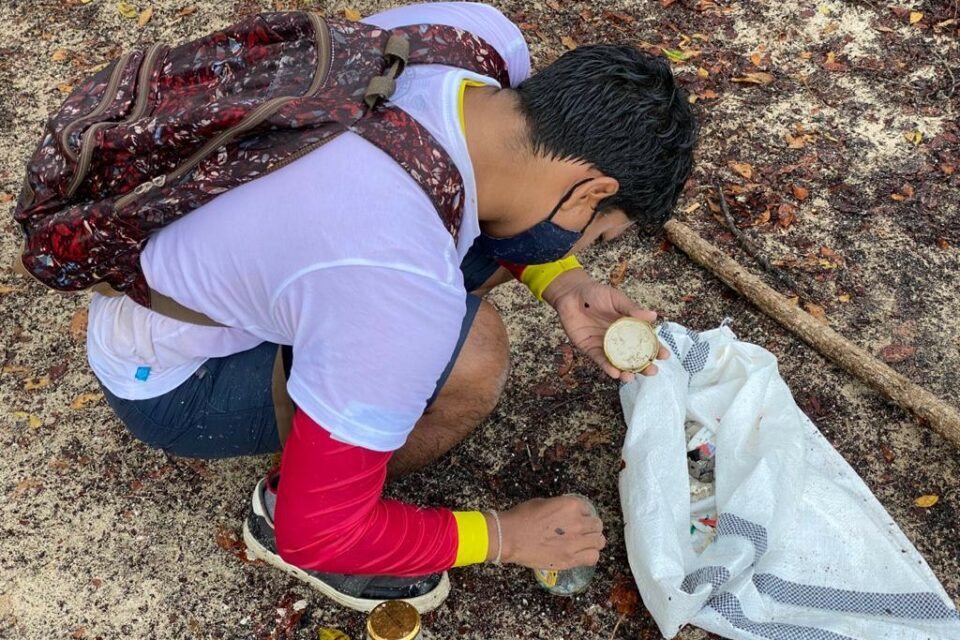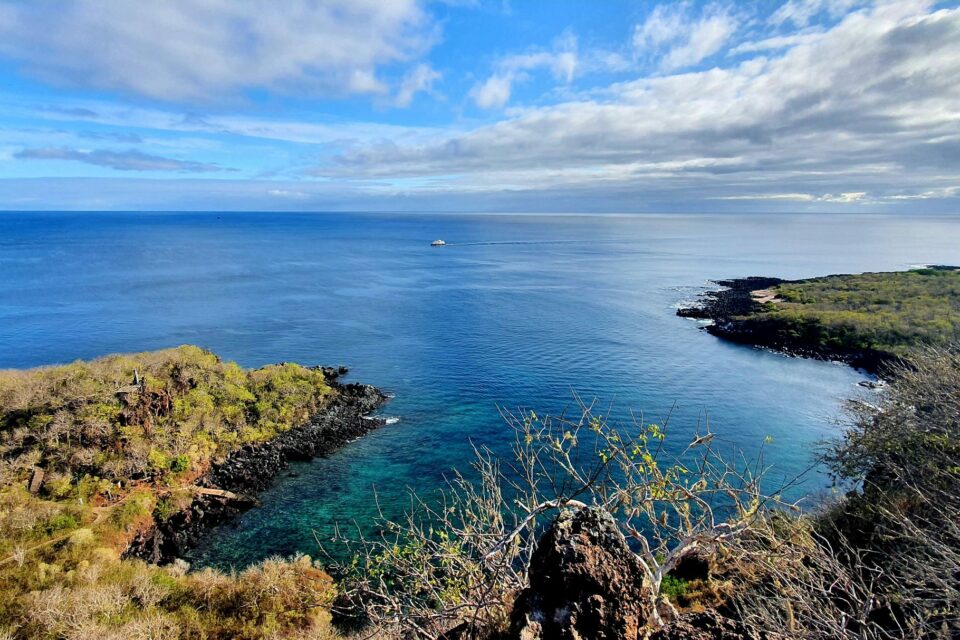

Global relevance: Financing conservation post COVID-19
The Worldwide Fund for Nature and Credit Suisse estimate that around US$300-400 billion is required to protect our planet’s species and ecosystems every year, but that the annual funding from government and donations is just US$52 billion. We have a clear choice: we can either let 83% of our biodiversity disappear or turn towards the private sector to make up the shortfall.
Unfortunately, the COVID-19 pandemic has had a major impact on all forms of tourism and many businesses and communities dependent on visitors have suffered.
The Worldwide Fund for Nature and Credit Suisse estimate that around US$300-400 billion is required to protect our planet’s species and ecosystems every year, but that the annual funding from government and donations is just US$52 billion. We have a clear choice: we can either let 83% of our biodiversity disappear or turn towards the private sector to make up the shortfall.
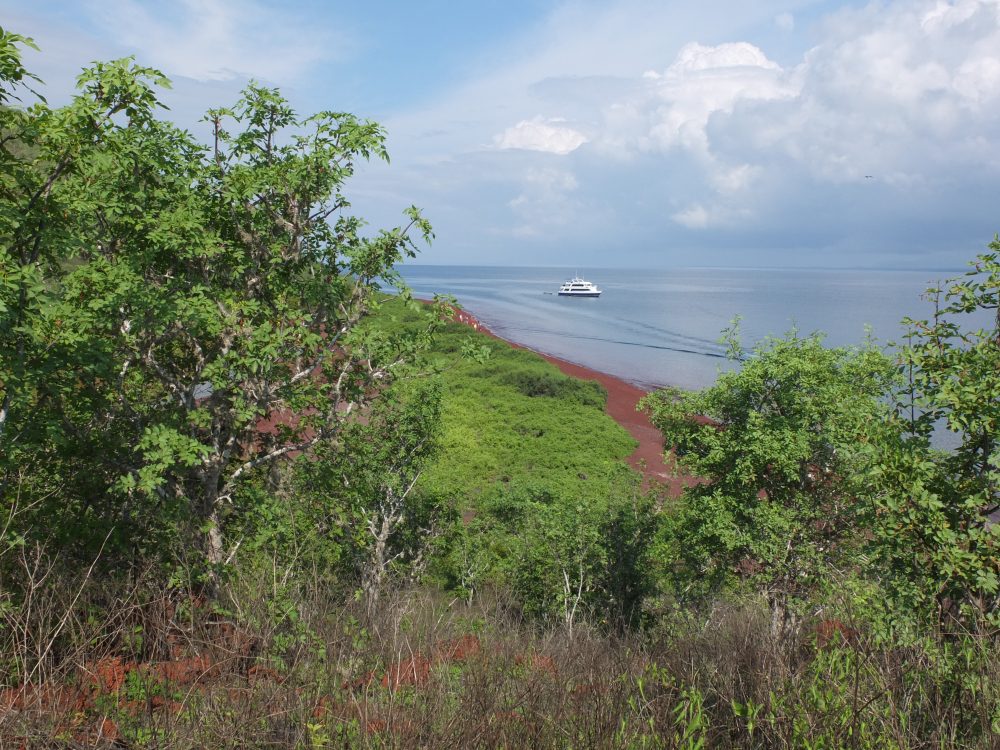
While tourism will always be important in Galapagos, it is important to diversify income sources © David Ridge
The past decade has seen a major increase in private finance for conservation. These funds are used to establish either ‘investable’ projects that deliver conservation outcomes or businesses that generate income or incentives that support conservation objectives. Ecotourism has been the go-to product for most NGOs and it has paid off. For example, the Masai Mara National Reserve in Kenya now attracts almost 300,000 high-paying visitors a year, with nearly US$5 million in payments made to local communities in 2019.
Unfortunately, the COVID-19 pandemic has had a major impact on all forms of tourism and many businesses and communities dependent on visitors have suffered. The latest figures from the UN World Tourism Organisation suggest that international tourism arrivals in 2020 were down by more than 70% globally compared to 2019, back to levels last seen some 30 years ago. The airline industry predicts that international travel will not recover fully until 2023 at the earliest.
This has had a profound knock-on effect upon the income of conservation organisations. Gorilla tourism in Uganda and Rwanda has ceased completely due to the risk of disease transmission, and staff there have been laid off. Ol Pejeta Conservancy in Kenya has reported daily tourism income in the hundreds of dollars, when it is usually in the thousands. Staff there have taken a 30% cut in income and there have been mass redundancies. There have also been reports of an increase in wildlife poaching for bushmeat as local incomes from tourism are lost.
While the tourism industry is expected to recover, the pandemic has taught us that relying on any one sector is a mistake, and that we need to focus on resilience. At Fauna & Flora International (FFI), we aim to develop a small portfolio of enterprise for each of our strategic landscapes. In the tropics, for instance, this portfolio is likely to span ecotourism ventures, but also agricultural commodities like cocoa as well as forest carbon. This diversity that allows us to use business to deliver a wider range of goals and achieve a greater community participation.
Even on remote islands like Galapagos, there are opportunities for private finance to build resilience by diversifying investments away from ecotourism. Just before the pandemic hit, Ecuador’s Ministry of the Environment announced an ambitious project to encourage private investment in renewable energy generation and climate-smart practices in agriculture, livestock and other initiatives. This conservation trust fund remains to be capitalised by international donors, but this is an approach has been proven elsewhere.
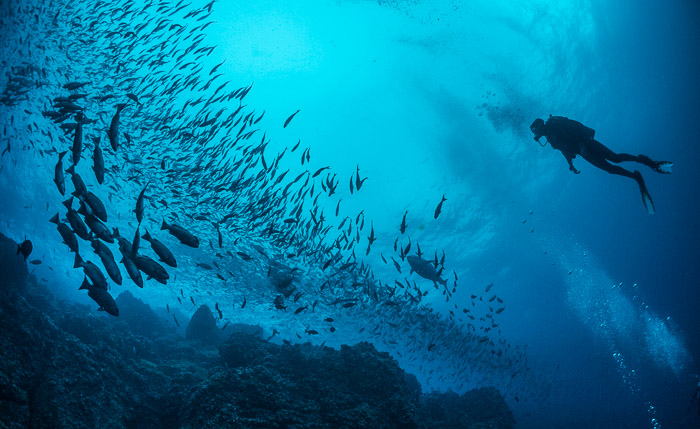
A scuba diver with fish © Simon Pierce
The concept of the ‘Blue Economy’ has also increased in popularity, and there are now investment funds targeted at this market, such as Althelia’s Sustainable Ocean Fund. Investors in marine conservation are interested in carbon credits from mangrove and seagrass protection and restoration, sustainable fisheries and aquaculture production, all of which are relevant to Galapagos. Blue Economy investors are also interested in less obvious areas, like businesses that reduce ocean discharge, manage ship bilges, town sewerage and other land-based activities that affect the ocean.
Finally, we are also witnessing a transformation in tourism due to the pandemic, with an increase in the importance placed on private travel and accommodation, as well as increased desire for ethical travel and authentic learning experiences. Places like Galapagos need to change their tourism products to adapt to these trends. Tourism is projected to bounce back, and now is a good time to get ready for this.
COVID-19 has not chased away the investors in conservation. The money is still on the table, and the business models and product demand are there. It does involve, however, doing things differently, and requires a different skillset and mindset to traditional project-based conservation. But for those individuals and organisations willing to adapt and innovate, taking an investment and enterprise approach to conservation may deliver objectives in a way that conventional projects cannot.
This article was originally published in the Spring/Summer 2021 edition of Galapagos Matters.
How you can help
If you’d like to become a member of Galapagos Conservation Trust from as little as £4 per month, head to our Membership page or make a donation today.
Related articles

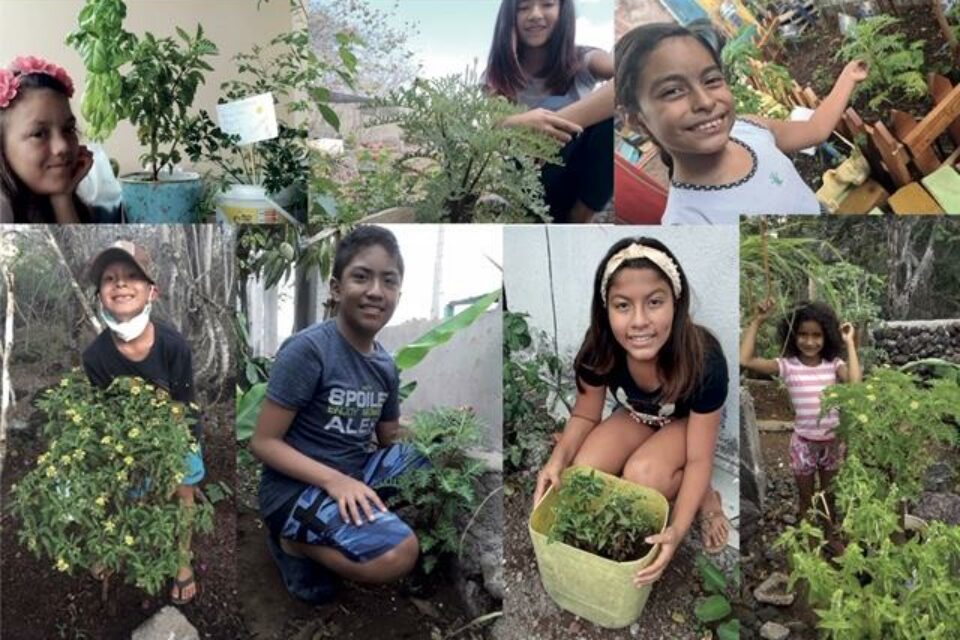
Urban Family Gardening: Positivity amidst the pandemic
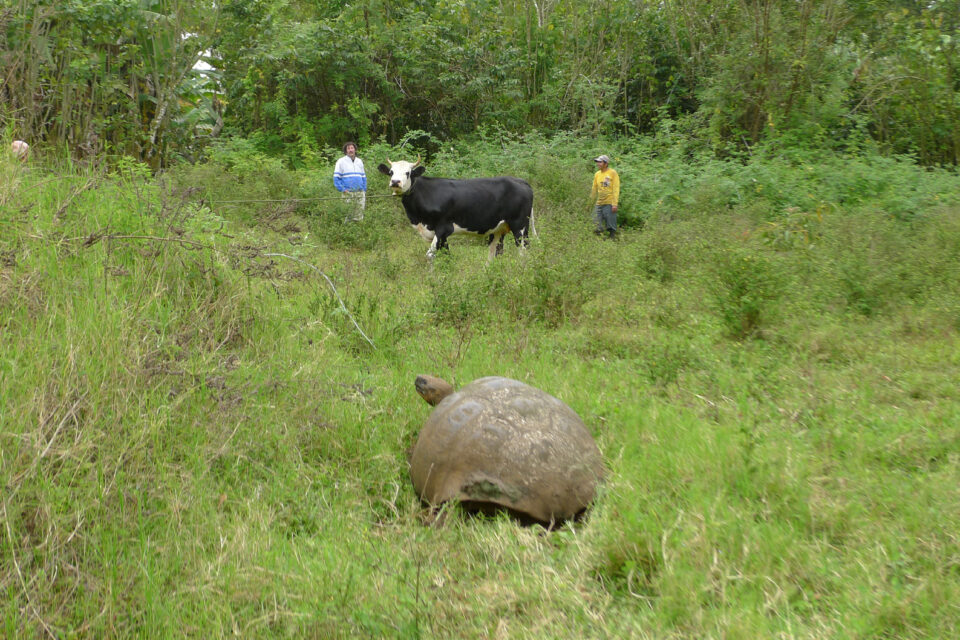
One Health: It's time to rethink our relationship with nature
